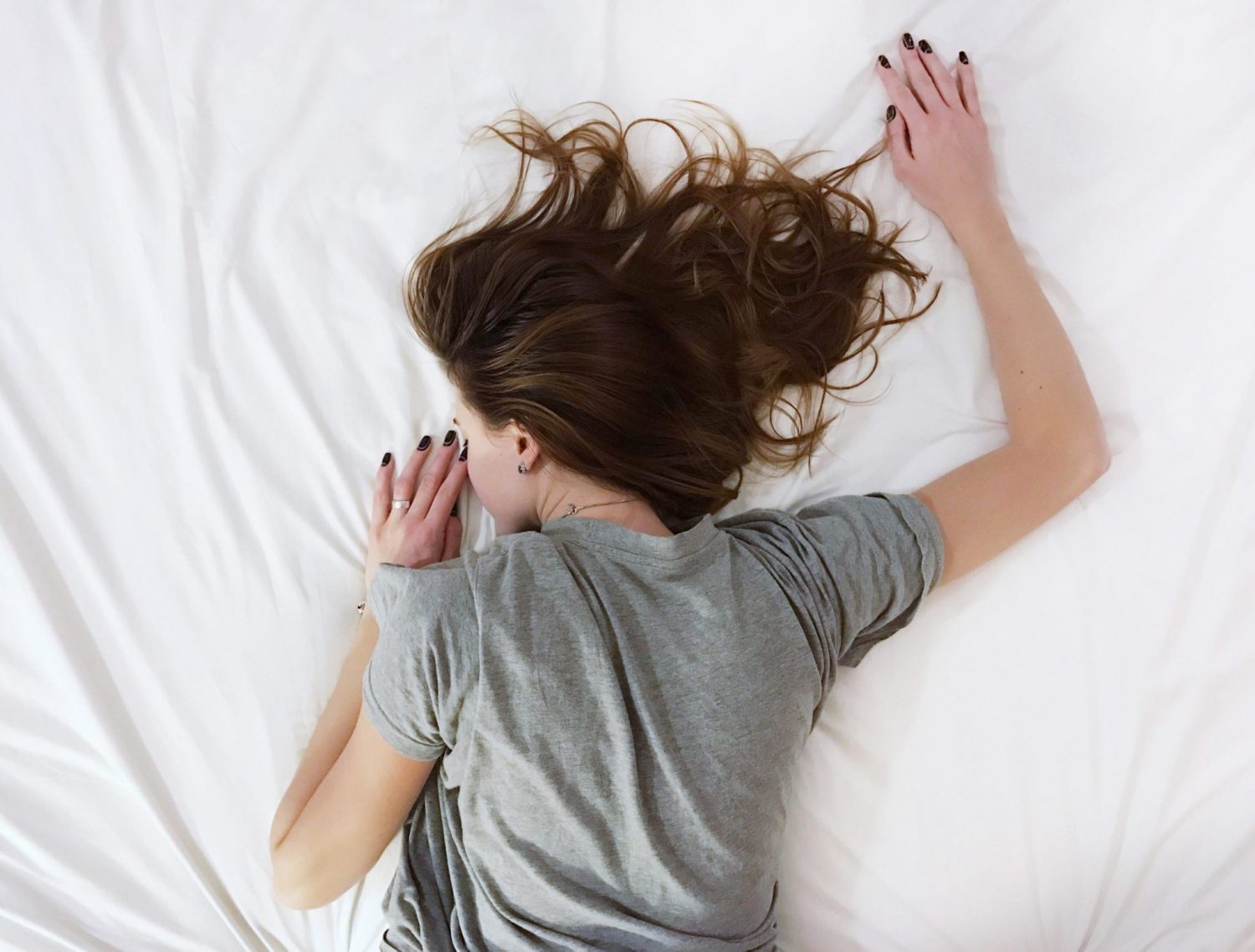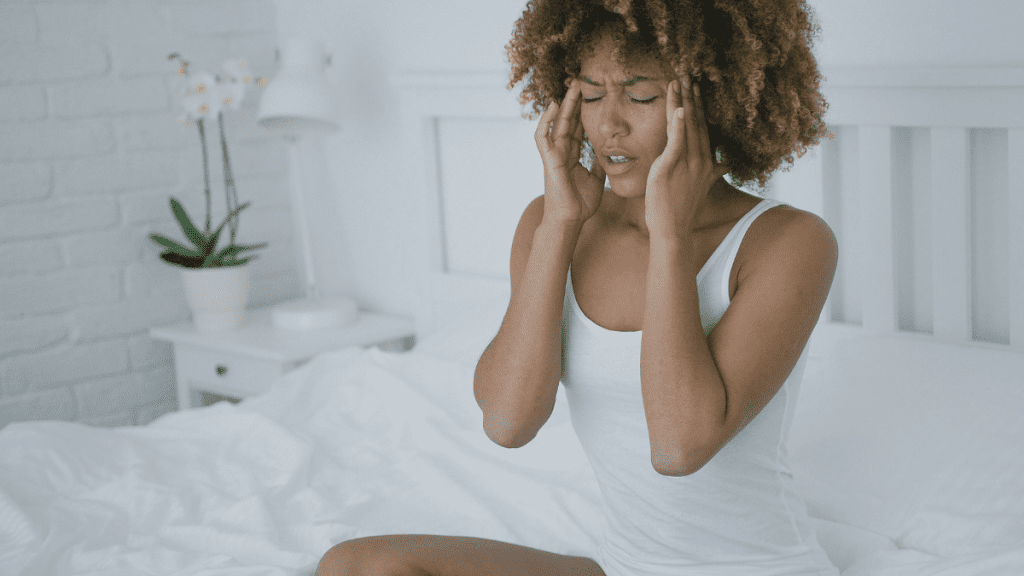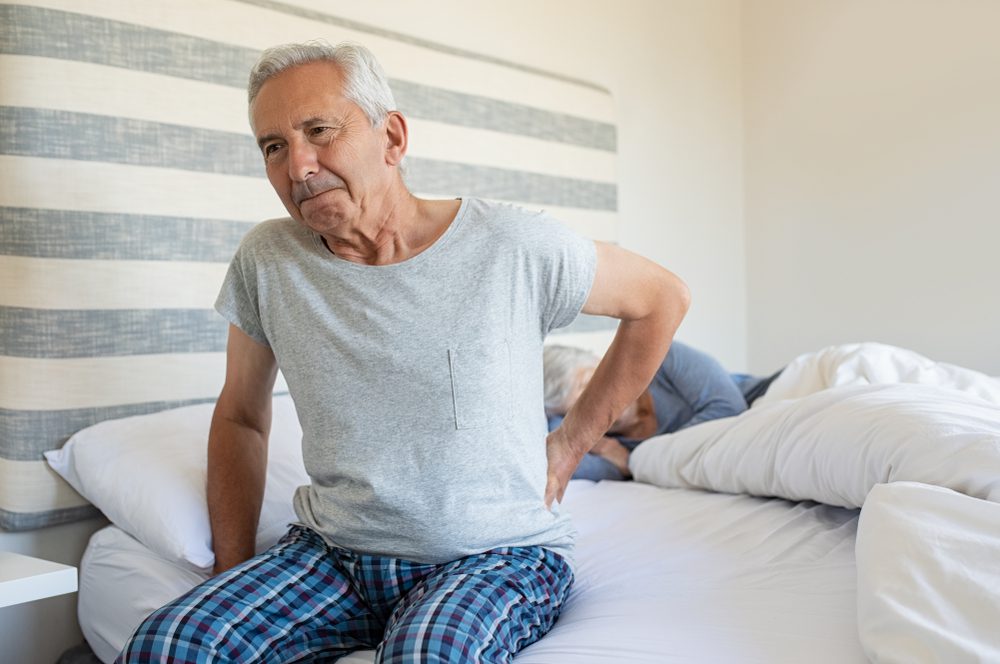
Smartphones, Netflix, noisy neighbours, work stress, blue light, caffeine, remembering that embarrassing thing you did when you were 14… most adults find it challenging to get a full 7-8 hours of sleep every night. But for those of us who experience chronic pain, sleep deprivation can become a serious issue.
Unfortunately, when chronic pain and sleep deprivation combine, it can result in a vicious cycle: pain prevents sleep, then sleep deprivation worsens symptoms. And it’s not just your physical health which is affected by lack of sleep. Without enough shut eye, it’s increasingly difficult for us to be emotionally resilient, to take part in our everyday activities and to feel – well – ourselves. In short, the combination of chronic pain and sleep deprivation can be… a waking nightmare.
Keep reading to learn more about sleep deprivation, and to discover some tips for getting more sleep when you experience chronic pain.
What Is Sleep Deprivation?
Put simply, sleep deprivation is “not getting enough sleep”. Insufficient sleep can lead to either short-term sleep deprivation (when you experience a short period of sleeplessness) or long-term sleep deprivation (when individuals lose a great deal of sleep over a long period).
The Sleep Deprivation Test
Do you think you might be sleep deprived? This simple test, known as the Sleep Latency Onset Test, could give you a good indication.
- Lie down for an afternoon nap in a quiet, darkened room. You need to be holding a spoon in your hand over the edge of your bed – ideally over a metal tray positioned on the floor.
- Check the time before you close your eyes.
- The theory is that, when you fall asleep, you will drop the spoon, causing a loud clatter that will wake you up.
- Re-check the clock when you re-open your eyes.
If you have fallen asleep within five minutes, it’s a good indication that you are suffering from sleep deprivation. This test may sound silly, but its creator, Dr Nathaniel Kleitman, affirms that it is based on solid science.
Of course, for individuals with chronic pain, drifting off within 5 minutes may be unlikely, even if you truly are sleep deprived.
Sleep Deprivation Symptoms
Both short- and long-term sleep deprivation can have negative health consequences. The longer a period of sleep deprivation continues, the more severe the symptoms are likely to be. While short-term sleep deprivation may result in immediate negative effects, these are usually temporary and will resolve when sleep returns. For individuals who experience long-term sleep deprivation, the outcomes can be more severe and more long-lasting.
The symptoms of short-term sleep deprivation include:
- Drowsiness and fatigue
- Concentration difficulties
- Memory difficulties
- Increased stress
- Irritableness
- Low mood
- Increased anxiety
- Difficulty managing your emotions
- Physical weakness
- A weakened immune system (you may be more likely to catch colds and flus etc.)
- Reduced libido
- An increased risk of accidents
Over the long-term, the effects of sleep deprivation can become more serious. Symptoms can include:
- Mental illness (including anxiety, depression and psychosis)
- Hallucinations
- Extreme mood swings
- Weight gain and obesity
- High blood pressure
- An increased risk of a range of health conditions such as:
- Diabetes
- Heart disease
- Respiratory disease
- Stroke
Source: medicalnewstoday.com
Our bodies and brains depend on sleep to undertake many processes essential to our health and wellbeing. That’s why our mental and physical health can be seriously affected by sleep deprivation.
How Sleep Deprivation Affects the Brain
As you’ll see from the list of symptoms, insufficient sleep can have a serious impact on your mental health.
There are many studies which indicate that sleep is critical to many brain functions, including forming new memories, and ‘recharging’ our minds. Exactly how sleep affects our brains remains something of a mystery in the field of science, but researchers have found that sleep disruption affects the brain’s neurotransmitters and increases our levels of stress hormones, resulting in emotional difficulties and cognitive problems.

Chronic Pain and Sleep Deprivation
So, how can you start sleeping more and earning back those crucial hours of rest when you have chronic pain? Chronic pain can make it difficult to get to sleep, as well as causing you to wake up more frequently during the night. In chronic conditions like ankylosing spondylitis, it can even cause you to wake up very early in the morning.
In short, chronic pain and sleep deprivation are a terrible combination. Not least because lack of sleep can make pain symptoms even worse.
4 Ways to Get Better Sleep
It’s important to be realistic when you have chronic pain. Although lots of small steps can make it more likely that you’ll drift off to sleep, there is also no silver bullet. Sometimes your pain will prevent you sleeping and no amount of lavender oil will help. However, there are a few strategies you could try to increase the chances of getting more shut-eye.
1. Take your medication right before bed
If your doctor deems it appropriate, taking pain medication before bed might prevent instances of disturbed sleep by ensuring that pain relief lasts until morning.
If this isn’t an appropriate time for you to take your medication – for example, if it needs to be taken at mealtimes – or if you are looking for a non-medicinal approach, our all-natural, transdermal Active Patches can be worn overnight. Our patches work by releasing a combination of vitamin D and dextrose (ingredients which improve the health of nerves, joints and muscles) directly into the tissue, allowing you to have a more comfortable night’s sleep.
2. Practise better sleep hygiene
That means priming your environment and your schedule for your best possible sleep. Experts recommend turning off all devices (yes, that includes the box-set you’re binge-watching) an hour before bed. It may also be helpful to have a set bedtime and a set wake-up time each day to prime your body for rest.
Make sure your room is cool, dark and quiet to increase your chances of a peaceful night. Little extras such as white noise, ear plugs, eye masks, blackout curtains and humidifiers can be helpful for some people.
3. Prepare your body for sleep
How you treat your body during the day can affect how well you sleep at night. Try to make sure you get at least 30 minutes of exercise each day, spend time in direct sunlight and avoid stimulants like caffeine. Cutting out alcohol can also improve the quality of your sleep. Before bed, try to avoid rich heavy foods, spicy foods, citrus and carbonated drinks, too.
4. Try to relax
This may sound obvious, but there are many things you could try to promote relaxation which you may not have considered. Meditation apps like Headspace are a popular choice for many, while relaxing baths or even ASMR videos help put others into a relaxed state of mind, ready for bed.
If you find you are unable to nod off, don’t force it. This can cause stress and anxiety. Instead, try a relaxing activity such as reading, which could help you get a little closer to drifting off. An approach to bedtime which involves ‘relaxing distraction’ is widely recommended for people who experience chronic pain.
Over to you!
Does chronic pain affect your sleep? Are there any approaches which help you drift off? We’d love to share them with other readers. Whether it’s a specific bedtime snack or your favourite meditation app, tell us your story, or share your sleep habits to help others get some hard-earned Zzzs.



